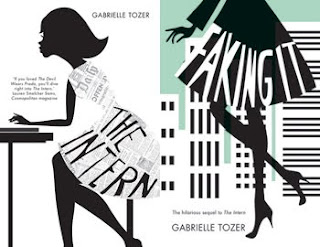 |
| Photo credit: http://www.weekendnotes.com/bendigo-writers-festival/ |
The Bendigo Writers Festival was my first writing
festival and I really enjoyed it. I enjoyed it so much that I really can’t
pinpoint what may have been my favourite session, though ‘Happy Ending’, ‘Stone
by Stone’ and ‘Looking and Learning’ were definitely some of the highlights.
All three were really interesting and made me think about writing in a new way.
The ‘Text Marks the Spot’ day was extremely informative and I think Sue Gillett and Sarah Mayor Cox did a fantastic job organising
the day for students, who from what I’ve seen, are an exceedingly tough crowd to cater
to and keep entertained. The opening session's game show they devised was
innovative and fun, and the rest of the sessions were awesome and gave me so
much insight into writing and the authors themselves.
The rest of the weekend had a slightly
different feel to it, only really in the sense that it felt more relaxed and
less like I was in a lecture, but was still hectic. I think I found ‘Text Marks the Spot’
a little more enjoyable because there weren’t people writing off the younger
generations because of stereotypes that exist, which happened more times than I would like to admit. This obviously is a reflection
of the person expressing their views and not the organisers of the event, or
the people being asked the question, who all answered impeccably, but it did take something away from those sessions.
The only real critique I have of the
festival is the timing and the placement of sessions. Some of the ones that
focused on the young adult genre tended to be in the smaller venues and sometimes got quite crowded. The timing of the sessions was also a bit
hard because there was only fifteen minutes between them. Whilst this seems
like it’s enough, if there was a long line for the session the start was
sometimes missed. This time frame also meant that if you wanted to attend
sessions all day without a break, there wasn’t enough time to have
something to eat or go to the toilet.
Overall though, the 2016 BWF was really
enjoyable. I will definitely be looking to attend next year if I can, and may
venture out further into other writing festivals throughout Victoria.




